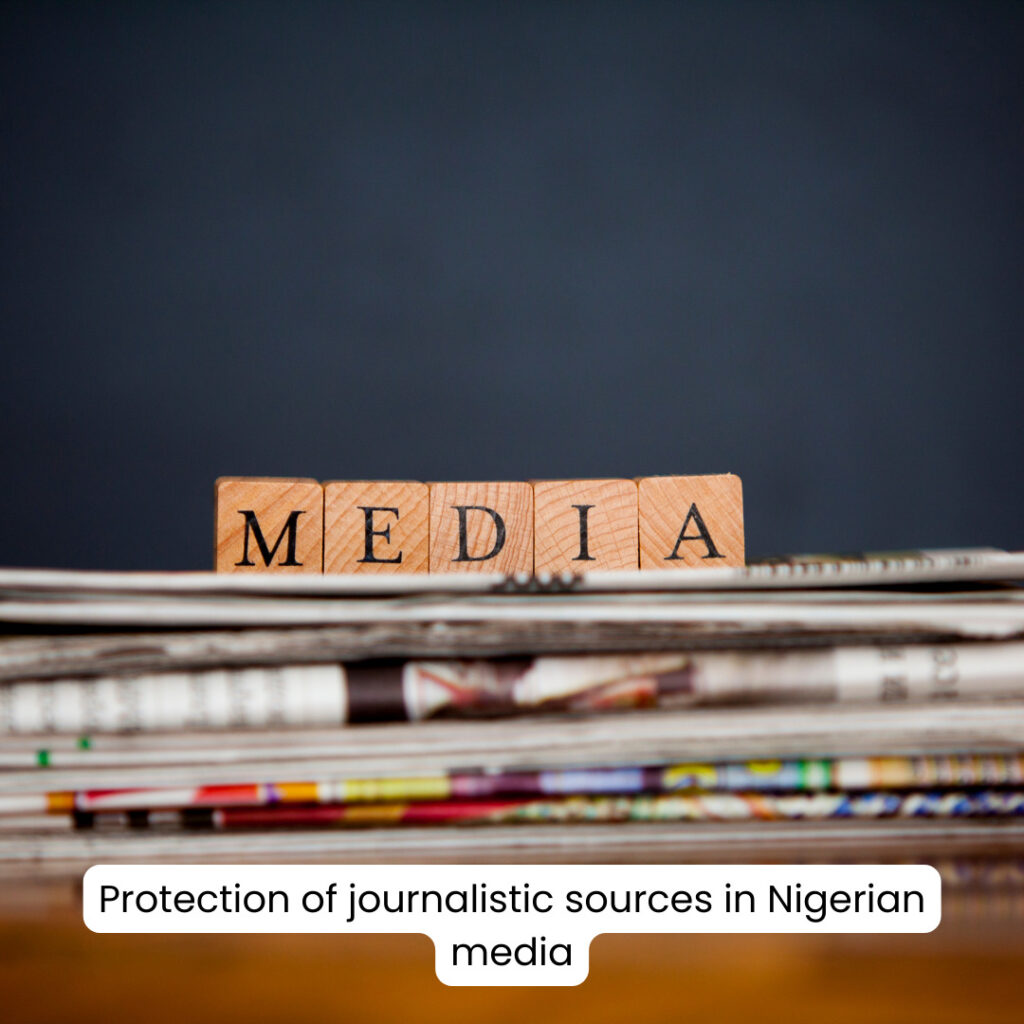Protection of Journalistic Sources in Nigerian Media
Journalism serves as a crucial cornerstone of democracy, acting as a watchdog that holds those in power accountable, informs the public, and facilitates open discourse. In Nigeria, a nation with a vibrant and diverse media landscape, the protection of journalistic sources is a fundamental principle that upholds the integrity of reporting and ensures the free flow of information. Journalists often rely on confidential sources to uncover stories of public interest, but the balance between preserving sources’ anonymity and legal obligations is a complex challenge. In this article, we delve into the importance of protecting journalistic sources in Nigerian media, examining its significance, key considerations, challenges, and implications for both journalists and society.
The Significance of Source Protection
The protection of journalistic sources is paramount for the following reasons:
- Freedom of the Press: Preserving the anonymity of sources encourages whistleblowers, insiders, and individuals with sensitive information to come forward, promoting a vibrant press and robust public discourse.
- Investigative Journalism: Source protection is essential for investigative journalism, allowing journalists to uncover corruption, abuse of power, and other matters of public interest.
- Trust and Credibility: Source confidentiality fosters trust between journalists and their sources, ensuring that individuals are willing to share valuable information without fear of reprisal.
- Media Pluralism: Ensuring source protection supports media pluralism by enabling a diverse range of voices to contribute to public debate.

Key Considerations in Nigerian Context
Protecting journalistic sources in Nigeria involves several key considerations:
- Legal Framework: The legal framework should explicitly recognize and safeguard the right of journalists to keep their sources confidential.
- Balancing Rights: Balancing the right to protect sources with other legal obligations, such as national security concerns, requires careful consideration.
- Ethical Standards: Upholding ethical standards in journalism, such as verifying information from sources, enhances the credibility of source protection practices.
- Public Interest: Journalists must weigh the public interest in disclosing information against potential harm that might result from source exposure.
Challenges and Opportunities
Protecting journalistic sources in Nigerian media presents both challenges and opportunities:
- Legal Ambiguity: Ambiguity in legal protections for sources can lead to uncertainty and self-censorship among journalists.
- State Surveillance: Surveillance and monitoring of journalists can jeopardize source protection and hinder investigative reporting.
- Source Reluctance: Sources may be reluctant to come forward if they fear exposure and its potential consequences.
- Ethical Dilemmas: Balancing the duty to protect sources with other ethical considerations, such as truth-telling, can raise ethical dilemmas for journalists.
Charting a Path Forward
The future of source protection in Nigerian media holds promise:
- Legal Reforms: Strengthening legal protections for sources can create an environment where journalists feel confident in maintaining confidentiality.
- Digital Security: Embracing digital security measures can safeguard sources’ identities and protect against surveillance.
- Journalistic Training: Providing journalists with training on source protection and digital security can enhance their ability to handle sensitive information.
- Advocacy and Awareness: Raising awareness about the importance of source protection and its role in preserving democracy can garner public support.
Conclusion
The protection of journalistic sources is a bedrock principle that fortifies the role of journalism in Nigerian society. By establishing clear legal protections, promoting ethical standards, and embracing technological safeguards, Nigeria can create an environment where journalists are empowered to uncover the truth, hold power accountable, and contribute to a vibrant and informed public discourse. As Nigeria’s media landscape continues to evolve, a commitment to source protection will safeguard the rights of both journalists and sources, ultimately enriching the democratic fabric of the nation and advancing the cause of transparency, accountability, and free expression.
